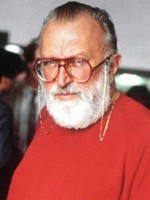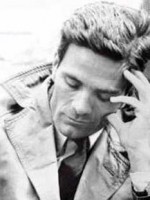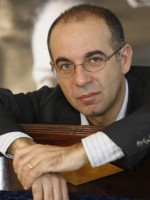Ennio Morricone is a Actor, Sound and Compositor Italien born on 10 november 1928 at Rome (Italie)

Ennio Morricone, , [ˈɛnnjo morriˈkoːne] (born November 10, 1928) is an Italian composer, orchestrator, conductor and former trumpet player, who has written music for more than 500 motion pictures and television series, as well as contemporary classical works. His career includes a wide range of composition genres, making him one of the world's most versatile, prolific and influential film composers of all time. Morricone's music has been used in over sixty award-winning films.
His absolute music production includes over 100 classical pieces composed since 1946. During the late 50s Morricone served as a successful studio arranger for RCA. He orchestrated over five hundred songs and worked with music artists such as Paul Anka, Chet Baker and Mina. However, Morricone gained worldwide fame by composing (during the period 1960-1975) the music for Italian westerns by directors such as Sergio Leone, Duccio Tessari and Sergio Corbucci, including the Dollars Trilogy, A Pistol for Ringo, The Big Gundown, Once Upon a Time in the West, The Great Silence, The Mercenary, A Fistful of Dynamite and My Name is Nobody.
During the 60s and 70s, he built long-term associations with directors such as Gillo Pontecorvo, known for the war film The Battle of Algiers, Bernardo Bertolucci for whom Morricone scored the 1976 epic film Novecento, Henri Verneuil, Pier Paolo Pasolini, Mauro Bolognini, Dario Argento and Elio Petri. Morricone composed music for all film genres, ranging from comedy and drama to action thrillers and historical films. He achieved commercial success with several compositions, including The Ecstasy of Gold, the theme of The Good, the Bad & the Ugly, A Man with Harmonica, the protest song "Here's to You" sung by Joan Baez and Chi Mai. Between 1964 and 1980 he was also the trumpet player and a co-composer for the avant-garde free improvisation group Il Gruppo. In 1978, Morricone wrote the official theme for the 1978 FIFA World Cup.
Since 1977, Morricone's career got a boost in Hollywood by composing music for some of film history's most prolific American directors such as John Carpenter, Brian De Palma, Barry Levinson, Mike Nichols and Oliver Stone. Morricone composed music for Academy Award-winning motion pictures, including Days of Heaven, The Mission, The Untouchables, Cinema Paradiso and Bugsy. Other noteworthy scores include Exorcist II, The Thing, Casualties of War, In the Line of Fire, Disclosure, Wolf, Bulworth, Mission to Mars and Ripley's Game. In the 80s and 90s, Morricone continued to compose music for European directors. His music for La Cage aux Folles, Le Professionnel, Once Upon a Time in America and ¡Átame! are among his best known film scores. He has composed music for numerous television series, including the acclaimed television miniseries Moses the Lawgiver, La Piovra, The Secret of the Sahara, Marco Polo and Nostromo.
Morricone is also associated with the Italian director Giuseppe Tornatore, composing all the music for all his films since Cinema Paradiso (1988), such as award-winning scores for Legend of 1900, Malèna, La Sconosciuta and more recently Baaria (2009) and The Best Offer (2013). Other recent works include the music for the television serie Karol and his scores for The End of a Mystery, 72 Meters and Fateless. In the 2000s, Morricone's music has also been reused in movies and television series such as The Sopranos, The Simpsons and Quentin Tarantino's Kill Bill, Inglourious Basterds and Django Unchained.
He has conducted many orchestras worldwide, including the London Philharmonic Orchestra, the New York Philharmonic and the London Symphony Orchestra. Morricone is serving as one of the main conductors of the Orchestra Roma Sinfonietta since the mid-90s. He has conducted over 200 concerts worldwide since 2001 and is still performing regularly. In November 2013, Morricone began a small world tour to coincide with the 50th anniversary of his film music career.
In 2007, Ennio Morricone received the Academy Honorary Award "for his magnificent and multifaceted contributions to the art of film music". He has been nominated for a further five Oscars during 1979-2001. Morricone has won three Grammy Awards, two Golden Globes, five BAFTAs during 1979-1992, ten David di Donatello, eleven Nastro d'Argento, two European Film Awards, the Golden Lion Honorary Award and the Polar Music Prize in 2010.
Ennio Morricone est le fils aîné de Mario Morricone, trompettiste de jazz dans des orchestres, et de Libera Ridolfi, femme au foyer qui lui donne quatre frères et sœurs Adriana, Aldo, Maria et Franca.
Son père, qui le sensibilise à la musique dès ses premières années, l'inscrit à l'Académie nationale de Sainte-Cécile de Rome. Élève de Goffredo Petrassi, il y obtient un diplôme de trompette en 1946. À l'académie, il rencontre aussi Bruno Nicolai, avec lequel il se lie d'amitié et qui sera un de ses collaborateurs les plus proches tout au long de sa carrière. Il obtient ensuite ceux de composition, d'instrumentation et de direction d'orchestre en 1954 et débute dans la musique classique ou expérimentale dès 1953. La même année, il compose son premier arrangement professionnel pour une série d'émissions radiophoniques.
En 1956, il se marie à Maria Travia qui lui donne trois fils (dont Andrea Morricone qui devient lui aussi compositeur et son assistant) et une fille.
Il écrit sa première œuvre classique en 1957, mais les bénéfices sont trop faibles pour lui permettre de vivre de son œuvre. Il est alors embauché à la RAI en 1958, mais démissionne après un seul jour de travail. Sans abandonner la musique classique, il se tourne vers une musique plus populaire en écrivant de nombreux arrangements pour la télévision et des chansons. Ces travaux le font connaitre et apprécier par des artistes divers, y compris par des réalisateurs qui font appel à lui à partir de 1960. Il débute donc en musique de film, après des arrangements et des travaux pour d'autres musiciens chevronnés, officiellement à partir de 1961 avec Il federale de Luciano Salce.
Il fait quelques incursions dans le domaine de la chanson en composant et dirigeant deux albums consacrés à une diva de la chanson mondiale : sa compatriote Milva avec l'album Dedicato A Milva Da Ennio Morricone en 1968 et à la chanteuse française Mireille Mathieu avec l'album Mireille Mathieu chante Ennio Morricone en 1974. Il arrange aussi plusieurs titres de l'album de Richard Cocciante "Anima", la même année.
En 1971, Marc Gilbert, producteur de l'émission Italiques de l'ORTF, lui demande l'autorisation d'utiliser la musique du film À l'aube du cinquième jour, pour le générique de l'émission. Illustrée par un dessin animé de Jean-Michel Folon, elle servira dès lors de référence sur le service public.
Compositeur de bandes originales
Auteur de musiques pour Bernardo Bertolucci, Pier Paolo Pasolini, Dario Argento ou Marco Bellocchio, il acquiert une renommée internationale et la reconnaissance quasi immédiate de ses pairs surtout avec Sergio Leone et la partition de Pour une poignée de dollars. Réitérant avec succès sa collaboration avec Leone, pour des classiques comme Le Bon, la Brute et le Truand ou Il était une fois dans l'Ouest qui obtiennent un triomphe discographique sans précédent, ou encore avec Il était une fois la révolution, Morricone poursuit également son travail dans des domaines de plus en plus divers, touchant à tous les genres.
Au cours des années 60, 70 et 80, son style fait de nervosité et de lyrisme est maintes fois imité tout en inspirant également l'univers des variétés. Le succès discographique accompagne par ailleurs souvent ses œuvres, comme la chanson Here's to you que chante Joan Baez pour Sacco et Vanzetti ou le fameux Chi Mai qui rythme Le Professionnel avec Jean-Paul Belmondo. Il compose par ailleurs la bande originale de succès tels que Le Clan des Siciliens en 1969, 1900, Les Moissons du ciel, Le Pré, Il était une fois en Amérique, ou encore Mission, pour lequel il est nommé aux Oscars. Dans les années 2000, il compose notamment pour la télévision italienne (Padre Pio en 2001, Cefalonia en 2005).
C'est un musicien infatigable et inclassable, son style éclectique allie mysticisme, sensibilité, poésie, force et lyrisme. Il est récompensé à de nombreuses reprises durant sa carrière : BAFTA de la meilleure musique de film en 1987, plusieurs Nastri D'argento, cinq nominations aux Oscars, trois Golden Globes, un Grammy Award et un Lion d'or du Festival de Venise. Il est également distingué par des titres honorifiques : le président italien Carlo Azeglio Ciampi lui décerne la Medaglia di prima Classe di Benemerito dell'Arte e della Cultura en 2000, et le président français Nicolas Sarkozy le fait Chevalier de la Légion d'honneur en 2009.
Durant la 79e cérémonie des Oscars en 2007, il est récompensé par un Oscar d'honneur pour l'ensemble de sa carrière.
En 2015, il est révélé qu'il composera la bande originale du film Les Huit Salopards de Quentin Tarantino, qui est grand fan de ses compositions qu'il réutilisait souvent pour ses films. C'est un retour au western pour le compositeur après un arrêt de 40 ans. Cette composition lui vaut une sixième nomination aux Oscars qu'il remportera pour la première fois à l'âge de 87 ans.
Compositeur de musique « absolue »
Sa musica assoluta, terme utilisé par le compositeur pour désigner sa musique de concert (en réaction à la musica applicata, appliquée à un sujet, par exemple le scénario d'un film) débute en 1946. En 1965 il intègre le groupe d'improvisation et de composition avant-gardiste Nuova Consonanza.
Il compose un nombre important de pièces de musique de chambre et pour orchestre, telles que Concerto pour orchestre en 1957, Concerto pour flûte et violoncelle en 1983, Cantate pour l'Europe en 1988, Terzo concerto pour guitare, marimba et cordes créé par l'Orchestre symphonique français dirigé par Laurent Petitgirard en 1992 ou encore Voci del Silenzio en 2002 (œuvre chorale dirigée notamment par Riccardo Muti au festival de Ravenne). En 1991 il dédie son concerto pour trompette Ut (1991) au trompettiste soliste Mauro Maur, un de ses musiciens préférés. De 2012 à 2015, il compose une messe intitulée Missa Papae Francisci. Dédiée au pape François, elle est écrite à l’occasion du bicentenaire du rétablissement de la Compagnie de Jésus.
Le chef d'orchestre
À partir de 2001, Ennio Morricone ralentit son activité cinématographique et renoue avec la direction orchestrale. Il entame une tournée musicale avec des dates européennes à Vérone, Paris, Londres au Royal Albert Hall en 2003 puis dans le monde entier. Il se produit principalement à la tête de l'Orchestre de la radio italienne ou de l'orchestre Roma Sinfonietta accompagné d'une centaine de choristes, dirigeant des morceaux tirés de ses compositions pour des films à succès tels Mission ou Cinema Paradiso, ou pour des films moins connus tels Malèna, Vatel ou ceux de Roberto Faenza.
En 2004, il enregistre un disque avec le violoncelliste Yo Yo Ma contenant ses thèmes à succès. Le 2 février 2007, il dirige l'orchestre Roma Sinfonietta pour un concert au siège des Nations Unies célébrant la prise de fonctions du secrétaire général Ban Ki-moon. Lors d'un concert dédié à la mémoire de Jean-Paul II en 2007 à Cracovie, il interprète avec ce même orchestre un oratorio basé sur un texte et un poème de l'ancien souverain pontife.
 (2015)
(2015)
(Sound)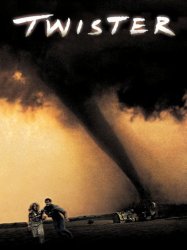 (1996)
(1996)
(Sound) (2012)
(2012)
(Sound)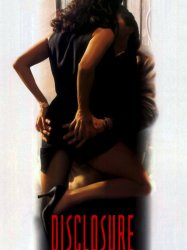 (1994)
(1994)
(Music)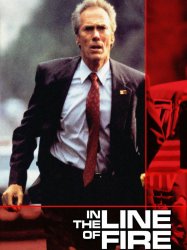 (1993)
(1993)
(Original Music Composer)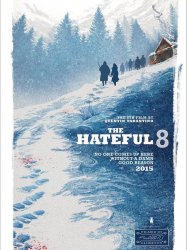 (2015)
(2015)
(Original Music Composer)
Source : Wikidata
Ennio Morricone

- Infos
- Photos
- Best films
- Family
- Characters
- Awards
Nationality Italie
Birth 10 november 1928 at Rome (Italie)
Death 6 july 2020 (at 91 years)
Awards Chevalier de la Légion d'Honneur, Grand Officer of the Order of Merit of the Italian Republic, Commander of the Order of Merit of the Italian Republic, Gold Medal of the Italian Order of Merit for Culture and Art, Nastro d'Argento for Best Score
Birth 10 november 1928 at Rome (Italie)
Death 6 july 2020 (at 91 years)
Awards Chevalier de la Légion d'Honneur, Grand Officer of the Order of Merit of the Italian Republic, Commander of the Order of Merit of the Italian Republic, Gold Medal of the Italian Order of Merit for Culture and Art, Nastro d'Argento for Best Score
Ennio Morricone, , [ˈɛnnjo morriˈkoːne] (born November 10, 1928) is an Italian composer, orchestrator, conductor and former trumpet player, who has written music for more than 500 motion pictures and television series, as well as contemporary classical works. His career includes a wide range of composition genres, making him one of the world's most versatile, prolific and influential film composers of all time. Morricone's music has been used in over sixty award-winning films.
His absolute music production includes over 100 classical pieces composed since 1946. During the late 50s Morricone served as a successful studio arranger for RCA. He orchestrated over five hundred songs and worked with music artists such as Paul Anka, Chet Baker and Mina. However, Morricone gained worldwide fame by composing (during the period 1960-1975) the music for Italian westerns by directors such as Sergio Leone, Duccio Tessari and Sergio Corbucci, including the Dollars Trilogy, A Pistol for Ringo, The Big Gundown, Once Upon a Time in the West, The Great Silence, The Mercenary, A Fistful of Dynamite and My Name is Nobody.
During the 60s and 70s, he built long-term associations with directors such as Gillo Pontecorvo, known for the war film The Battle of Algiers, Bernardo Bertolucci for whom Morricone scored the 1976 epic film Novecento, Henri Verneuil, Pier Paolo Pasolini, Mauro Bolognini, Dario Argento and Elio Petri. Morricone composed music for all film genres, ranging from comedy and drama to action thrillers and historical films. He achieved commercial success with several compositions, including The Ecstasy of Gold, the theme of The Good, the Bad & the Ugly, A Man with Harmonica, the protest song "Here's to You" sung by Joan Baez and Chi Mai. Between 1964 and 1980 he was also the trumpet player and a co-composer for the avant-garde free improvisation group Il Gruppo. In 1978, Morricone wrote the official theme for the 1978 FIFA World Cup.
Since 1977, Morricone's career got a boost in Hollywood by composing music for some of film history's most prolific American directors such as John Carpenter, Brian De Palma, Barry Levinson, Mike Nichols and Oliver Stone. Morricone composed music for Academy Award-winning motion pictures, including Days of Heaven, The Mission, The Untouchables, Cinema Paradiso and Bugsy. Other noteworthy scores include Exorcist II, The Thing, Casualties of War, In the Line of Fire, Disclosure, Wolf, Bulworth, Mission to Mars and Ripley's Game. In the 80s and 90s, Morricone continued to compose music for European directors. His music for La Cage aux Folles, Le Professionnel, Once Upon a Time in America and ¡Átame! are among his best known film scores. He has composed music for numerous television series, including the acclaimed television miniseries Moses the Lawgiver, La Piovra, The Secret of the Sahara, Marco Polo and Nostromo.
Morricone is also associated with the Italian director Giuseppe Tornatore, composing all the music for all his films since Cinema Paradiso (1988), such as award-winning scores for Legend of 1900, Malèna, La Sconosciuta and more recently Baaria (2009) and The Best Offer (2013). Other recent works include the music for the television serie Karol and his scores for The End of a Mystery, 72 Meters and Fateless. In the 2000s, Morricone's music has also been reused in movies and television series such as The Sopranos, The Simpsons and Quentin Tarantino's Kill Bill, Inglourious Basterds and Django Unchained.
He has conducted many orchestras worldwide, including the London Philharmonic Orchestra, the New York Philharmonic and the London Symphony Orchestra. Morricone is serving as one of the main conductors of the Orchestra Roma Sinfonietta since the mid-90s. He has conducted over 200 concerts worldwide since 2001 and is still performing regularly. In November 2013, Morricone began a small world tour to coincide with the 50th anniversary of his film music career.
In 2007, Ennio Morricone received the Academy Honorary Award "for his magnificent and multifaceted contributions to the art of film music". He has been nominated for a further five Oscars during 1979-2001. Morricone has won three Grammy Awards, two Golden Globes, five BAFTAs during 1979-1992, ten David di Donatello, eleven Nastro d'Argento, two European Film Awards, the Golden Lion Honorary Award and the Polar Music Prize in 2010.
Biography
Formation et débutsEnnio Morricone est le fils aîné de Mario Morricone, trompettiste de jazz dans des orchestres, et de Libera Ridolfi, femme au foyer qui lui donne quatre frères et sœurs Adriana, Aldo, Maria et Franca.
Son père, qui le sensibilise à la musique dès ses premières années, l'inscrit à l'Académie nationale de Sainte-Cécile de Rome. Élève de Goffredo Petrassi, il y obtient un diplôme de trompette en 1946. À l'académie, il rencontre aussi Bruno Nicolai, avec lequel il se lie d'amitié et qui sera un de ses collaborateurs les plus proches tout au long de sa carrière. Il obtient ensuite ceux de composition, d'instrumentation et de direction d'orchestre en 1954 et débute dans la musique classique ou expérimentale dès 1953. La même année, il compose son premier arrangement professionnel pour une série d'émissions radiophoniques.
En 1956, il se marie à Maria Travia qui lui donne trois fils (dont Andrea Morricone qui devient lui aussi compositeur et son assistant) et une fille.
Il écrit sa première œuvre classique en 1957, mais les bénéfices sont trop faibles pour lui permettre de vivre de son œuvre. Il est alors embauché à la RAI en 1958, mais démissionne après un seul jour de travail. Sans abandonner la musique classique, il se tourne vers une musique plus populaire en écrivant de nombreux arrangements pour la télévision et des chansons. Ces travaux le font connaitre et apprécier par des artistes divers, y compris par des réalisateurs qui font appel à lui à partir de 1960. Il débute donc en musique de film, après des arrangements et des travaux pour d'autres musiciens chevronnés, officiellement à partir de 1961 avec Il federale de Luciano Salce.
Il fait quelques incursions dans le domaine de la chanson en composant et dirigeant deux albums consacrés à une diva de la chanson mondiale : sa compatriote Milva avec l'album Dedicato A Milva Da Ennio Morricone en 1968 et à la chanteuse française Mireille Mathieu avec l'album Mireille Mathieu chante Ennio Morricone en 1974. Il arrange aussi plusieurs titres de l'album de Richard Cocciante "Anima", la même année.
En 1971, Marc Gilbert, producteur de l'émission Italiques de l'ORTF, lui demande l'autorisation d'utiliser la musique du film À l'aube du cinquième jour, pour le générique de l'émission. Illustrée par un dessin animé de Jean-Michel Folon, elle servira dès lors de référence sur le service public.
Compositeur de bandes originales
Auteur de musiques pour Bernardo Bertolucci, Pier Paolo Pasolini, Dario Argento ou Marco Bellocchio, il acquiert une renommée internationale et la reconnaissance quasi immédiate de ses pairs surtout avec Sergio Leone et la partition de Pour une poignée de dollars. Réitérant avec succès sa collaboration avec Leone, pour des classiques comme Le Bon, la Brute et le Truand ou Il était une fois dans l'Ouest qui obtiennent un triomphe discographique sans précédent, ou encore avec Il était une fois la révolution, Morricone poursuit également son travail dans des domaines de plus en plus divers, touchant à tous les genres.
Au cours des années 60, 70 et 80, son style fait de nervosité et de lyrisme est maintes fois imité tout en inspirant également l'univers des variétés. Le succès discographique accompagne par ailleurs souvent ses œuvres, comme la chanson Here's to you que chante Joan Baez pour Sacco et Vanzetti ou le fameux Chi Mai qui rythme Le Professionnel avec Jean-Paul Belmondo. Il compose par ailleurs la bande originale de succès tels que Le Clan des Siciliens en 1969, 1900, Les Moissons du ciel, Le Pré, Il était une fois en Amérique, ou encore Mission, pour lequel il est nommé aux Oscars. Dans les années 2000, il compose notamment pour la télévision italienne (Padre Pio en 2001, Cefalonia en 2005).
C'est un musicien infatigable et inclassable, son style éclectique allie mysticisme, sensibilité, poésie, force et lyrisme. Il est récompensé à de nombreuses reprises durant sa carrière : BAFTA de la meilleure musique de film en 1987, plusieurs Nastri D'argento, cinq nominations aux Oscars, trois Golden Globes, un Grammy Award et un Lion d'or du Festival de Venise. Il est également distingué par des titres honorifiques : le président italien Carlo Azeglio Ciampi lui décerne la Medaglia di prima Classe di Benemerito dell'Arte e della Cultura en 2000, et le président français Nicolas Sarkozy le fait Chevalier de la Légion d'honneur en 2009.
Durant la 79e cérémonie des Oscars en 2007, il est récompensé par un Oscar d'honneur pour l'ensemble de sa carrière.
En 2015, il est révélé qu'il composera la bande originale du film Les Huit Salopards de Quentin Tarantino, qui est grand fan de ses compositions qu'il réutilisait souvent pour ses films. C'est un retour au western pour le compositeur après un arrêt de 40 ans. Cette composition lui vaut une sixième nomination aux Oscars qu'il remportera pour la première fois à l'âge de 87 ans.
Compositeur de musique « absolue »
Sa musica assoluta, terme utilisé par le compositeur pour désigner sa musique de concert (en réaction à la musica applicata, appliquée à un sujet, par exemple le scénario d'un film) débute en 1946. En 1965 il intègre le groupe d'improvisation et de composition avant-gardiste Nuova Consonanza.
Il compose un nombre important de pièces de musique de chambre et pour orchestre, telles que Concerto pour orchestre en 1957, Concerto pour flûte et violoncelle en 1983, Cantate pour l'Europe en 1988, Terzo concerto pour guitare, marimba et cordes créé par l'Orchestre symphonique français dirigé par Laurent Petitgirard en 1992 ou encore Voci del Silenzio en 2002 (œuvre chorale dirigée notamment par Riccardo Muti au festival de Ravenne). En 1991 il dédie son concerto pour trompette Ut (1991) au trompettiste soliste Mauro Maur, un de ses musiciens préférés. De 2012 à 2015, il compose une messe intitulée Missa Papae Francisci. Dédiée au pape François, elle est écrite à l’occasion du bicentenaire du rétablissement de la Compagnie de Jésus.
Le chef d'orchestre
À partir de 2001, Ennio Morricone ralentit son activité cinématographique et renoue avec la direction orchestrale. Il entame une tournée musicale avec des dates européennes à Vérone, Paris, Londres au Royal Albert Hall en 2003 puis dans le monde entier. Il se produit principalement à la tête de l'Orchestre de la radio italienne ou de l'orchestre Roma Sinfonietta accompagné d'une centaine de choristes, dirigeant des morceaux tirés de ses compositions pour des films à succès tels Mission ou Cinema Paradiso, ou pour des films moins connus tels Malèna, Vatel ou ceux de Roberto Faenza.
En 2004, il enregistre un disque avec le violoncelliste Yo Yo Ma contenant ses thèmes à succès. Le 2 février 2007, il dirige l'orchestre Roma Sinfonietta pour un concert au siège des Nations Unies célébrant la prise de fonctions du secrétaire général Ban Ki-moon. Lors d'un concert dédié à la mémoire de Jean-Paul II en 2007 à Cracovie, il interprète avec ce même orchestre un oratorio basé sur un texte et un poème de l'ancien souverain pontife.
Best films
 (2015)
(2015)(Sound)
 (1996)
(1996)(Sound)
 (2012)
(2012)(Sound)
 (1994)
(1994)(Music)
 (1993)
(1993)(Original Music Composer)
 (2015)
(2015)(Original Music Composer)
Usually with
Filmography of Ennio Morricone (361 films)
Actor

Everybody's Fine (1990)
, 1h58Directed by Giuseppe Tornatore
Origin Italie
Genres Drama
Themes Films about families
Actors Marcello Mastroianni, Michèle Morgan, Valeria Cavalli, Roberto Nobile, Salvatore Cascio, Jacques Perrin
Roles Conductor
Rating76%





Matteo Scuro, a retired Sicilian bureaucrat and opera buff, has been stood up by his five adult children during the summer vacation, all of whom live in various cities on the Italian mainland with what he believes are responsible jobs. Despite their not visiting and the neighbours' criticisms, he remains optimistic, considering that his children could not come because they are too busy. His children are named after popular opera characters, Tosca for Puccini's Tosca, Canio for Leoncavallo's Pagliacci, Norma for Bellini's Norma, Guglielmo for Rossini's Guglielmo Tell and Alvaro for Verdi's La forza del destino.
 , 2h5
, 2h5Directed by Elio Petri
Origin Italie
Genres Drama
Themes Films about the labor movement, Political films
Actors Gian Maria Volonté, Mariangela Melato, Salvo Randone, Gino Pernice, Luigi Diberti, Renata Zamengo
Roles Operaio (uncredited)
Rating76%





Lulu Massa is a reliable and dedicated factory worker but then he loses a finger due to a work accident. He lets himself get agitated by communistic students and becomes an agitator himself. His employer fires him for supporting those students but they refuse to acknowledge responsibility. The trade union, although having resented his previous aggressivity, achieves to get him back into his old job. At night Lulu has a dream where he breaks through a wall and there's nothing behind it.
Sound
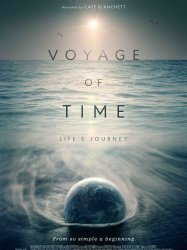
Directed by Terrence Malick
Origin USA
Genres Drama, Documentary
Actors Brad Pitt, Cate Blanchett
Roles Original Music Composer
Rating64%





Le documentaire s'articule et se résume par trois mots simples : « The past, the present, the future » (Le passé, le présent, le futur).
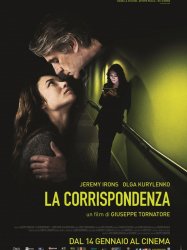
Correspondence (2016)
Directed by Giuseppe Tornatore
Genres Drama, Romance
Themes Seafaring films, Transport films
Actors Jeremy Irons, Olga Kurylenko, Shauna Macdonald, Ian Cairns, Anna Savva, Paolo Calabresi
Roles Original Music Composer
Rating61%





The Correspondence tells the tale of love and loss, a story of Amy (Olga Kurylenko), a young PhD student who takes excessive risks in her paid work as a stuntwoman. Her specialties are the action scenes, the acrobatics full of suspense, the danger that in fiction would typically end with the death of the double. It is through her relationship with an older astrophysics professor (Jeremy Irons) that she learns to reconcile past and present and face life’s vicissitudes.

American Sniper (2015)
, 2h12Directed by Clint Eastwood
Origin USA
Genres War, Biography, Action
Themes Seafaring films, Films about terrorism, Transport films, Political films, United States Armed Forces in films
Actors Bradley Cooper, Sienna Miller, Jake McDorman, Max Charles, Luke Grimes, Kyle Gallner
Rating73%





Growing up in Texas, Chris Kyle is taught by his father how to shoot a rifle and hunt deer. Years later, Chris has become a rodeo cowboy and returns home to find his girlfriend in bed with a stranger. After telling her to leave, he is mulling it over with his brother when he sees news coverage of the 1998 U.S. embassy bombings and decides to enlist in the navy. There he is eventually accepted for special training, becoming a U.S. Navy SEALs sniper.

The Hateful Eight (2015)
, 2h47Directed by Quentin Tarantino
Origin USA
Genres Drama, Thriller, Horror, Crime, Western
Themes L'action se déroule en une journée
Actors Samuel L. Jackson, Jennifer Jason Leigh, Kurt Russell, Bruce Dern, Tim Roth, Michael Madsen
Roles Original Music Composer
Rating77%





In post-Civil War Wyoming, John "The Hangman" Ruth (Russell) is escorting fugitive Daisy "The Prisoner" Domergue (Leigh) to Red Rock where the latter will face justice for murder. They encounter another bounty hunter named Major Marquis "The Bounty Hunter" Warren (Jackson) and Chris "The Sheriff" Mannix (Goggins). A blizzard forces the four to take shelter at a stagecoach passover called Minnie's Haberdashery where they encounter four more strangers; Bob "The Mexican" (Bichir), Oswaldo "The Little Man" Mobray (Roth), Joe "The Cow Puncher" Gage (Madsen), and ex-General Sanford "The Confederate" Smithers (Dern). Through betrayal and deception, the eight strangers soon learn that they may not make it to Red Rock after all.
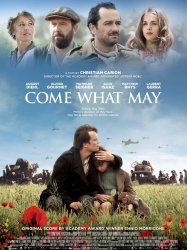
Come What May (2015)
, 1h54Directed by Christian Carion
Origin France
Genres Drama, War
Actors August Diehl, Olivier Gourmet, Mathilde Seigner, Alice Isaaz, Matthew Rhys, Laurent Gerra
Roles Music
Rating66%





On 10 May 1940, the German army invaded Belgium and France via the Ardennes.
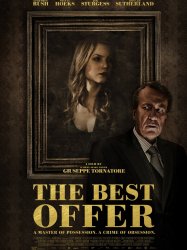
The Best Offer (2013)
, 2h11Directed by Giuseppe Tornatore
Origin Italie
Genres Drama, Crime, Romance
Themes Peinture
Actors Geoffrey Rush, Jim Sturgess, Donald Sutherland, Sylvia Hoeks, Philip Jackson, Liya Kebede
Roles Original Music Composer
Rating77%





The film tells a story of love and deceit, set in Europe (Trieste, Bolzano, Fidenza, Rome, Milan, Merano, Vienna, Prague) in the world of high-end art auctions and antiques. The story revolves around Virgil Oldman (Geoffrey Rush), an aging and esteemed, but somewhat eccentric, managing director of an auction house. Oldman is hired by a reclusive young heiress, Claire Ibbetson (Sylvia Hoeks), to auction off the large collection of art and antiques left to her by her parents. Claire always refuses to be seen in person, obviously suffering from severe agoraphobia and never leaving her room. Soon enough Virgil, a life-long bachelor, understands that he has fallen in love with her.

Django Unchained (2012)
, 2h45Directed by Quentin Tarantino
Origin USA
Genres Drama, Action, Western, Spaghetti Western
Themes Films about slavery, Films about racism
Actors Jamie Foxx, Christoph Waltz, Leonardo DiCaprio, Samuel L. Jackson, Kerry Washington, Walton Goggins
Rating81%





In Texas 1858, the Speck brothers, Ace and Dicky, drive black slaves on foot. Among the shackled slaves is Django, sold off and separated from his wife, Broomhilda von Shaft. The Speck brothers are stopped by Dr. King Schultz, a German ex-dentist and bounty hunter from Düsseldorf, Prussia. Schultz asks to buy one of the slaves; when he questions Django about his knowledge of the Brittle brothers, for whom Schultz is carrying a warrant, Ace becomes irritated and aims his shotgun at Schultz. Schultz quickly kills Ace and leaves Dicky at the mercy of the newly freed slaves, who shoot Dicky in the head.

Memories of Anne Frank (2010)
Directed by Alberto Negrin
Genres Drama, Historical
Themes Films about religion, Political films, Films about Jews and Judaism
Actors Emilio Solfrizzi, Rosabell Laurenti Sellers
Roles Original Music Composer
Rating60%





The film is about diarist Anne Frank and her friendship with Hanneli Goslar. In 1935, Anne and Hanneli, both of whom were little children, meet at their first day of the school. From that moment, they become very good friends and their friendship continues until 1942, when Anne and her family go to hiding. A few months after Anne and her family go to hiding, the Goslars are arrested by the Nazis. Hanneli, after being deported to the Bergen-Belsen concentration camp, is reunited with Anne, who is a more unprivileged prisoner of the camp imprisoned in the other side of the camp, which is separated by an electric-wired fence from the side where Hanneli is imprisoned.

Baaria (2009)
, 2h40Directed by Giuseppe Tornatore
Origin Italie
Genres Drama, Comedy, Comedy-drama, Historical, Romance
Themes Seafaring films, Transport films
Actors Francesco Scianna, Margareth Madé, Giorgio Faletti, Lina Sastri, Ángela Molina, Nicole Grimaudo
Roles Original Music Composer
Rating69%





The film recounts life in the Sicilian town of Bagheria (known as Baarìa in Sicilian), from the 1930s to the 1980s, through the eyes of lovers Peppino (Francesco Scianna) and Mannina (Margareth Madè).

Amer (2009)
, 1h30Origin France
Genres Drama, Thriller, Horror
Themes Serial killer films
Actors Harry Cleven, Jean-Michel Vovk
Rating61%





L'évolution de la vie sexuelle tourmentée d'Ana, de son enfance à l'adolescence, jusqu'à l'âge adulte.
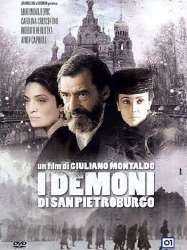
The Demons of St. Petersburg (2008)
Directed by Giuliano Montaldo
Genres Drama
Actors Carolina Crescentini, Miki Manojlović, Anita Caprioli, Roberto Herlitzka, Filippo Timi, Sandra Ceccarelli
Roles Music
Rating60%






The Unknown Woman (2006)
, 1h58Directed by Giuseppe Tornatore
Origin Italie
Genres Drama, Thriller
Themes Films about immigration, La précarité
Actors Ksenia Rappoport, Michele Placido, Claudia Gerini, Margherita Buy, Pierfrancesco Favino, Alessandro Haber
Roles Original Music Composer
Rating73%





Irena (Kseniya Rappoport), a Ukrainian prostitute on the run, is determined to find a job in an elegant apartment building in northern Italy, and starts by cleaning the stairs. She does it in order to inch her way into working for a family residing in that building. She befriends Gina (Piera Degli Esposti), the nanny of the family's child, Thea (Clara Dossena), who also lives with them in their apartment. When the nanny is crippled in a fall—tripped by Irena—but presumed to be accidental, Irena is hired to take her place. Through flashbacks, viewers learn that Irena has been physically and emotionally abused, and forced to bear nine children, all taken away at birth to be sold to adoptive families. After stabbing her pimp and leaving him for dead, she sets out to find her youngest child, whom she believes is Thea; hence the plot to work for them. Adoption documents in the apartment convince her that Thea is indeed her daughter. The mother grows suspicious of Irena and fires her, despite the loving relationship that has grown up between Irena and the child. Irena's pimp stalks her and sends out thugs to beat her up as she walks down the street. He rigs her employer's car, leading to a crash in which Thea's mother is killed. The pimp forces Irena to drive him to a location that may or may not contain the money Irena stole from him when she left him for dead. During a struggle, he falls and is killed as his head hits a rock. Thea's father moves to a new apartment and prepares a room for Irena, but as the police suspect foul play around the death of Thea's mother, Irena is taken into custody. She reveals both that the true culprit is the pimp and that she killed him. She is tried, and sent to jail. Thea stops eating until the judge allows Irena to visit her in the hospital and feed her. DNA testing reveals that Thea is not her daughter after all. After she is out of jail, she finds Thea, a young lady now waiting for her.
 Connection
Connection

